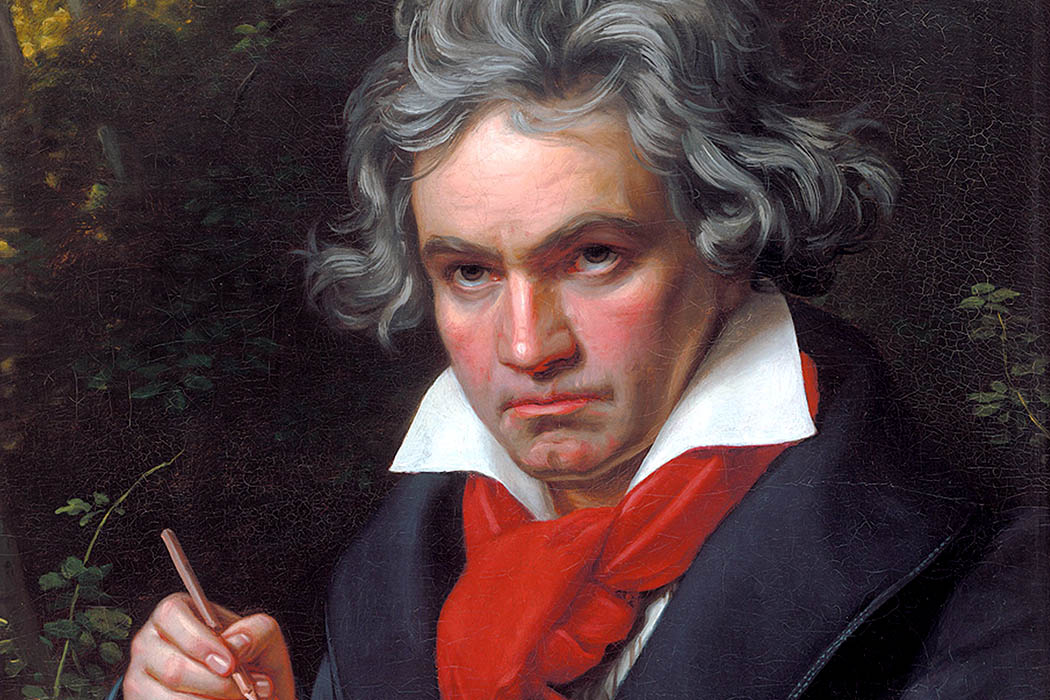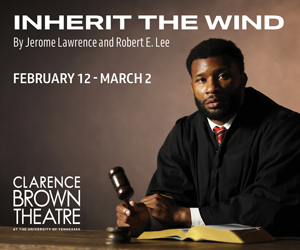One hardly needs an excuse to listen to more of the music of Ludwig van Beethoven—but if an excuse is required, the inevitable march of time is about to provide one. The year 2020 represents the 250th anniversary of the composer’s birth, so you can be sure that there will be a host of musical explorations of the composer’s works across the globe between now and then.
 The University of Tennessee School of Music has launched its own program of focus, Beethoven250, which will act as an organizing umbrella for concerts, recitals, discussions, and lectures over next two years. The UT Symphony Orchestra, under Director of Orchestras James Fellenbaum, is kicking off their participation this Sunday with their season-opening concert that will feature Beethoven’s Symphony No. 7 in A major.
The University of Tennessee School of Music has launched its own program of focus, Beethoven250, which will act as an organizing umbrella for concerts, recitals, discussions, and lectures over next two years. The UT Symphony Orchestra, under Director of Orchestras James Fellenbaum, is kicking off their participation this Sunday with their season-opening concert that will feature Beethoven’s Symphony No. 7 in A major.
The symphony had its premiere in December of 1813 at the University of Vienna along with a performance of Wellington’s Victory, a timely crowd favorite.
“From my standpoint over the next couple of years,” explains Fellenbaum, “we’ll have a greater emphasis on Beethoven works including the Seventh Symphony to start off with this week. In February, we’ll have the Choral Fantasy, which is a precursor to the Ninth Symphony, a work that will be the big culmination of Beethoven250 in February of 2020.”
Between now and that February, Fellenbaum is also planning a bit more Beethoven programming, including the Overture to Fidelio next March, as well as smaller string works and more of the symphonies. Expect to see other UT ensembles and faculty join the Beethoven adventure.
“Next fall, for example” Fellenbaum offers, “would be a perfect time to revisit the Fifth Symphony, since its been a while since we did it here.”

However, performing any Beethoven well, particularly the symphonies, is a challenging task, one that must be undertaken with a firm grasp on reality. By their very nature, student-based orchestras vary in personnel and ability from year to year, a fact that orchestra music directors like Fellenbaum must consider when deciding on programming.
“Last year was probably the best orchestra we’ve had since I’ve been here. What with the achievements and the ability, it was quite a special group. However, I have to say, this year’s orchestra might even end up being better. I was very pleasantly surprised by the performing level of many of the sections—and I’m eager to see what kind of performance achievement we can reach this season.”
“Our violin auditions were extremely competitive and were at a really high level,” says Fellenbaum. “I was really impressed by auditions overall, but the violins were particularly good. The top seven or so violins were really, really excellent.”
“Four years ago, I had a freshman violinist, Benjamin Parton, win the concertmaster chair and subsequently retain the position all four years he was here. And then, lo and behold, he graduates and another freshman, Samantha Hearn, a music education major, comes and wins the concertmaster chair.”
As a result, Fellenbaum is clearly optimistic. “Heading into this year, I thought I would have the right personnel to handle the Seventh, good woodwinds, good horns. All Beethoven symphonies have their own set of challenges, but the Third, the Fifth, the Seventh, the Sixth, and certainly the Ninth, are the major symphonies that get more of the performances historically, so I really wanted the orchestra to experience the Seventh. That’s why I chose it to start off this year and start off the Beethoven250.”
Among other UTSOM Beethoven offerings this fall is an October 28th faculty and guest artist recital featuring guest violinist Min-Tze Wu and faculty pianist Chih-Long Hu, performing Beethoven’s Violin Sonata in G Major, Op. 30, No. 3, along with works by Ravel and Strauss.
UT Symphony Orchestra—Beethoven’s Symphony No. 7
Sunday, September 23, 4:00 pm
James R. Cox Auditorium in the Alumni Memorial Building
1408 Middle Drive on the UT Campus
FREE






